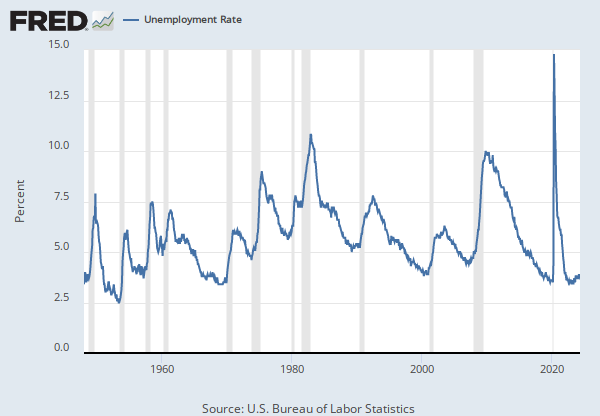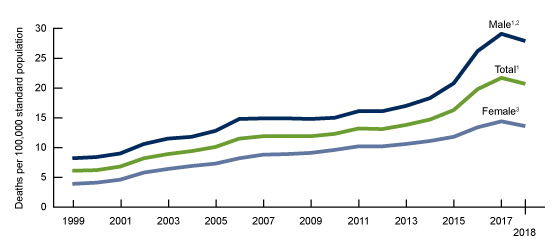| The app crashed vox.com |
Hey Siri can you fix Iowa's vote counting app? Welcome to the Iowa Caucus in the digital age where there is an app for everything, including caucus results. The app, designed to tally which of the 2020 candidates for the Democratic presidential nomination, crashed, sending the campaigns and caucus site workers into a state of panic. Almost immediately conspiracies theories popped up like mushrooms after a rainstorm, centering around former South Bend Indiana Mayor Peter Buttigieg because his campaign, the states of Iowa and Nevada paid for the creation of the app by the firm "Shadow." This coincided with the Buttigieg campaign's request for The Des Moines Register to not publish their much anticipated pre-caucus poll. Coincidental and no basis in fact. As of right now, Senator Bernie Sanders (D-VT) and Mayor Buttigieg are leading in the polls with only 62 percent of the results.
Meanwhile, in the Senate, the Senators are finally allowed to speak. Now that both sides have wrapped their arguments, each senator is allotted 10 minutes to address the chamber, explaining how they are going to vote and why? Kentucky Republican Senator Rand Paul, still fuming over not being called on during question, used his time to name the alleged whistle blower. A couple of senators have floated the idea of censure as an option to conviction. Maybe. The senators will adjourn in a little while for this evening's main event, the State of The Union.
| geology.com |
This evening is Mr. Donald Trump's third State of the Union address to a joint session of Congress. This address comes at a particularly unique moment: the eve of what is sure to be the president's acquittal in the Senate, and the Iowa Caucus meltdown. Now that the voters are finally having their say--quick digression, make sure you register to vote or your information is up-to-date at usa.gov--it is time to take a real look at the state of the union at this juncture in time.
 |
| The three most powerful people in Washington D.C. pbs.org |
The United States of America is in a good place for the first time since the Great Recession, which began in the final year of President George W. Bush's second term. The economy is back on track--low unemployment and growing wages--this is a fact worth celebrating and you can be certain that Mr. Donald Trump will thump his chest and declare victory. So while the president will subject every one to his special brand of hyperbole, it might worth mentioning that behind the presidential boasting, all is not popping champagne corks and balloons in the American economy. To put things in proper perspective, let us take a step back in time and see where the U.S. was in 2008.
 |
| moneycheck.com |
When the Great Recession hit, the United States had a dysfunctional healthcare system. Unemployment was high and wages were low. The home mortgage industry implosion that brought on the Recession resulted in an unprecedented number of foreclosure that led to an increase in the number of homeless and unhoused people. Ten years later, not much has changed, the number of people without medical insurance is getting worse. Drug overdose deaths are still at record highs and there are troubling signs of an increase in stimulant abuse. Child care and housing costs are growing faster than wages, creating an upswing in homelessness at the low end of the economy and a decline in birth rates among the middle class (vox.com; Feb. 4, 2020).
The American environmental situation continues to emerge in a way the defies partisan politics: CO2 emissions are going down despite the president's lack of interest in climate science and less boldfaced forms of air pollution he campaigned to get rid of are getting worse. While an improving labor market is good for many sectors of American life, there are key parts where the problems are not getting better despite of low unemployment rates. There is little reason to be optimistic about the current administration's interest in addressing these issues.
| forbes.com |
The current U.S. unemployment rate is 3.5 percent (fred.stlouisfed.org; Feb. 4, 2020) and the median household income is at an all time record $63,000 (Ibid). Despite some Cornovirus-related fluctuations over the past two week, the American stock market remains strong. That is definitely something to celebrate but if you put this moment in context to the boom period of the late 1990s or the post-World War II period, the picture looks a little different. Current conditions do not exactly speak of boom times but it is the best the U.S. has experienced in the 21st century. The good news is there are no real problems on the horizon and no particular economic vulnerabilities, other than the obvious ones: the lack of social and economic equity. Yours Truly was born with many gifts, predicting the future was not one of them.
 |
| fred.stlouisfed.org |
Like all presidents who inherit a strong economy, the president will strongly associate himself personally with economic success but do not hold your breath. Matthew Yglesias writes, "During the 2016 campaign, Democrats warned that Trump's recklessness would derail the economic that began during Barack Obama's administration, while Trump promised to supercharge growth. Neither thing happened" (vox.com; Feb. 4, 2020). Nothing in the macroeconomic data suggests that much, if anything, took place since Inauguration Day 2017. This is not to say that that the president does not deserve some credit: his choice for the Federal Reserve chair was a sensible one, he did preside over a healthy fiscal stimulus, and his trade policies have not been as disruptive as they have been made out to be. Yet, his much ballyhooed tax cuts have not delivered the kind of investment stimulus he promised and the record setting economic numbers are just continuations of previous trends (Ibid).
 |
| Age adjusted drug overdose death rates: 1999-2010 cdc.gov |
Mr. Yglesias reports, "Data released earlier this month shows that for the first time in a long time drug overdose deaths went down in 2018 [Ibid; Jan. 30, 2020] as the fight against the interlinked epidemic of prescription opioids, heroin, and fentanyl finally show some sign of success" (Ibid; Feb. 4, 2020). That is the good news. The bad news is overdose deaths from cocaine and methamphetamine are rising (Ibid; Jan. 30, 2020) even as heroin and opioid deaths decline.
/cdn.vox-cdn.com/uploads/chorus_asset/file/19186527/Screen_Shot_2019_09_10_at_12.09.40_PM.png) |
| vox.com |
Given the positive economic news, it seems rather striking that number of Americans without health insurance is rising (Ibid; Sept. 10, 2019) after years of decline. Recent reversals in the Affordable Care Act, linked to the Trump administration's efforts to "repeal and replace Obamacare" are linked to the drop in the number of uninsured Americans.
The intractable problem of homelessness continues to go unabated and is getting worse, despite the strong and improving economy (nbcnews.com; Dec. 21, 2019; date accessed Feb. 4, 2020). The reasons for the situation is complicated, but as Mr. Yglesias reports, "...the fact that fewer people can afford a place to live even when unemployment is falling and wages are rising has a pretty clear explanation: The rate of housebuilding is still nowhere near recovered from a crash that happened more than a decade ago at this point" (vox.com; Feb. 4, 2020).
| New housing starts 2008-2019 statista.com |
The intractable problem has been on the Trump radar over the past several but only as a way to taunt Speaker of the House of Representatives Nancy Pelosi because it is a serious problem in San Francisco, not because he has any solutions. The point here, is that homelessness and the lack of health insurance are economic policy problems. The fact that they are severe problems that are getting worse indicate that economic growth aside, things are not all that great.
Here is some rather startling news: greenhouse gas emissions fell (Ibid; Dec. 11, 2019). The cause is a surge in natural gas production, making it more economical for utility companies to switch from the high-emission coal-fired power plants to lower-emissions gas-fired ones (Ibid; Feb. 4, 2020). In order to achieve the kind of emissions reductions progressives want, the utilities would have to move to zero-emissions sources of electricity, not lower-emissions ones (Ibid). In the short run, the Trump administration preferred fossil fuel production has not produced any increase in emissions. If anything, the promised rebirth of coal production has had a reverse effect, coal production continues to wither away and Trump administration policies have led to a drop in greenhouse gas emissions.
 |
| brookings.edu Finally under the current administration, there has been a sharp slowdown in net immigration (brookings.edu; Oct. 2, 2019; date accessed Feb. 4, 2020) which helped slow U.S. population growth to a trickle. However, the crackdowns on immigration have not slowed the number or size of the foreign-born population because American women are having fewer children. |
The U.S. fertility rate (the number of babies born per females 15-44) has been steadily declining for over 10 years and keeps going down ( vox.com; Jan. 13, 2020; date accessed Feb. 4, 2020). Further the teen birth has fallen dramatically (Ibid; Jan. 21, 2015) thanks to better access to contraception and other factors as well. It is not a matter of women stating that they would like to have fewer children: "we are just seeing the gap between ideal fertility and actual fertility get bigger and bigger each year" (Ibid; Feb. 4, 2020). The main reason is the growing cost of child care (nytimes.com; July 5, 2018; date accessed Feb. 4, 2020)--something that a "good economy" cannot fix because it is so labor-intensive.
The state of the American union is good but needs improvement and whether it is with this president or someone else will be a matter for the voters to decide.
No comments:
Post a Comment